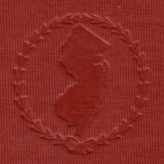 |  |  |
|
| ||
 |  |  |
 |  |  |
|
| ||
 |  |  |
|
|
By Frank R. Stockton
Originally published in 1896
This Web version, edited by GET NJ, COPYRIGHT 2003
THE war with the Barbary pirates was all sorts of a war. Sometimes there was fighting, and sometimes there was none; and after Bainbridge was released, he was engaged part of the time in the mercantile service until the war with Great Britain broke out in 1812. Early in this war, Bainbridge took command of the few months before, had had a fight with the "Guerriere," "Constitution," the same vessel which, a in which the latter was captured. It is a good deal better, sometimes, to fight with a strong enemy who will stand up bravely in front of you, and let you see what he is, than to contend with a mean little one who is continually getting out of the way and bobbing up at unexpected places, and making it very difficult either to get at him or to know when he is going to get at you. Consequently there is no doubt that Bainbridge much preferred to do battle with the naval power of Great Britain rather than with the pirates of Barbary.
He sailed down the coast of South America, and there he met the "Java," a British frigate. He had a hard fight and a long fight, and the end of it was that the "Java" hauled down her flag after having a great portion of her crew killed and wounded; and, as she was so thoroughly shattered and broken up by the guns of the " Constitution," the victors could not take her home as a prize, but were obliged to burn her.
If any one had been inclined to deride the Jerseyman at sea, after what had happened to Bainbridge in the Mediterranean, he changed his opinion after the affair with the "Java." In fact, a gold medal was voted to the gallant captain by Congress. When the war with Great Britain was over, Bainbridge took a squadron to the Mediterranean to try his hand again at protecting American commerce, and humbling the pirates; but fortune did not favor him this time, for Decatur had already settled the matter with the Dey, the Bey, and the rest of them, and peace was declared before Bainbridge arrived on the scene. Our Jersey sailor did not do any more fighting, but he held high positions in our navy, and died an honored commodore.
Years after the affair with the "Philadelphia," when war had begun between the United States and Great Britain, there was a great chance for America to show what she could do on the sea. Then the fighting men in ships were more important to the country than the fighting men on shore ; and Captain Lawrence, our fighting sailor from Burlington, showed himself among the foremost of our naval heroes.
Very early in the war he was in command of the "Hornet," a snappish vessel with more stings than one, and while cruising in South American waters he met the British man-of-war "Peacock." Now, when a hornet and a peacock quarrel, lively times are likely to ensue, and so it happened in this case.
The two vessels began by endeavoring to get into favorable positions, each anxious to rake the deck of the other. The "Peacock" did not spread her tail, but she spread her sail, and the "Hornet" buzzed this way and that, with her stings ready for action as soon as the proper moment should arrive. When at last they actually began to fight, the battle was a terrible one, such as was possible only in those days of wooden ships. But a short distance apart, they poured into each other heavy shot and small shot; musketry and cannon cracked and roared, while the clouds of smoke nearly hid the vessels from each other. This tremendous bombardment lasted about a quarter of an hour, and at the end of that time the "Peacock" struck her colors and surrendered. The captain and a good many of the crew had been killed, and the vessel was in such a demolished condition that there was not time to get all the prisoners and the wounded on board the " Hornet." The officers and men of the American vessel labored hard to save those on board their unfortunate enemy; but the "Peacock" sank before this could be entirely accomplished, and several of the British sailors, with three of those from the " Hornet," sank with her.
Captain Lawrence was not only a brave man, but he was a very kind one. He treated the officers and crew of the "Peacock" so well, even providing them with clothes (for they had no time to bring anything from their own vessel), that when the prisoners reached New York, the officers publicly thanked him in a paper which they drew up and signed. This victory, following our other brilliant exploits at sea, gave Lawrence great fame both here and abroad.
| Next |
| Main Menu |

|

|
UrbanTimes.com |